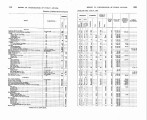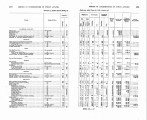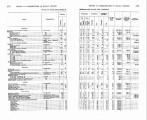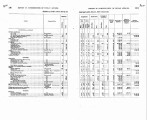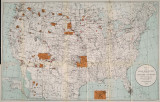| OCR Text |
Show ILEPORT OF COMMISSIONER OF INDIAN AFFAIRS. 139 A large part of the year was spent in the field assisting teachers to carry out your instructions to specialize the work to fit local con-ditions and to adapt it to meet the immediate and practical needs of pupils. From personal observation made during vlsits to the !es-ervations it is safe to say that the 8" neral condition of the Indian has improved far more in the last t ,ree years than in any previous three vears. and the outlook for continued advancement 1s decidedly encouraging. While steady progress in methods and results is noticeable in all branches of educational work, there is still room for improvement. As you are aware, each year a large number of teachers inexperienced in Indian educational work enter the service, many of whom do not readily grasp the difference in heredity between the white and the Indian child and fail to realize that metllods employed in instructing the former must necessarily be modified in educating the latter. This inaptitude is particularly noticeable in those assiped to nonreserva-tion schools, where they do not have an opportunity to observe and study at first hand the home life and environment of the Indian child. To overcome this as far a? possible, teachers have been urged to study the individual characteristics of their pupils, and while de-veloping the mind and training the hand, not to lose sight of the importance of makin the development of character the foundation o.f- a- ~l~l their efforts. ft is dificult to obtain the desired standard of ~ efficiency, because of the constant change in the personnel of the schools, and it is obviousthat greater progress would be made if a more permanent force could be retained. During our visits to the reservations we have endeavored to pro-mote your policy of maintaining close relations between the home and the school, especially the little day school sltuated m or near the camps and pueblos. Employees have been urged to make frequent visits to homes of pupils, gain the confidence of their parents, impress upon them the importance of observing the laws of hygiene and sani-tation, and assist them in every way possible, so that the training the children receive may be lasting. It is hoped that your policy to establish day schools in every section where there are sufficient chil-dren to justify them will be consummated as rapldly as possible, for, as I believe you have stated, the day schools not only lay the fovnda-tion of the Indian child's education, but are powerful factors in civilizing the adult Indian who has never attended school. I The application of your ideas and suggestions has resulted in the much-desired impetus to the school work and has been the means of giving the Indian child an education better adapted to his present needs. You have no doubt observed that the returned students as well as the adult Indians are taking advantage of the opportunities you have opened up for them to work and support themselves. In presenting thls report, emit me to express my appreciation of received from you. the practical direction anB e ncouragement which I have always Very respectfully, your obedient servant, I The COMMI~~IONOFE RIN DIhANm . 63268-09-10 |













































































































































































